Long PlayTime, High Bass Rate – Noble FoKus Apollo Bluetooth Headphones
Noble FoKus Apollo is a $649 USD pair of over-the-ear Bluetooth Headphones designed to be the best headphones that money can buy in the bluetooth headphones space. Apollo comes with a 40mm dynamic diver, and a 14.5mm planar magnetic driver, in a hybrid arrangement. Today we will review the Apollo and compare it with other headphones, including Ecoute TH1 (850 USD), Focal Bathys (699 USD), and Sennheiser Momentum 4 (338 USD).
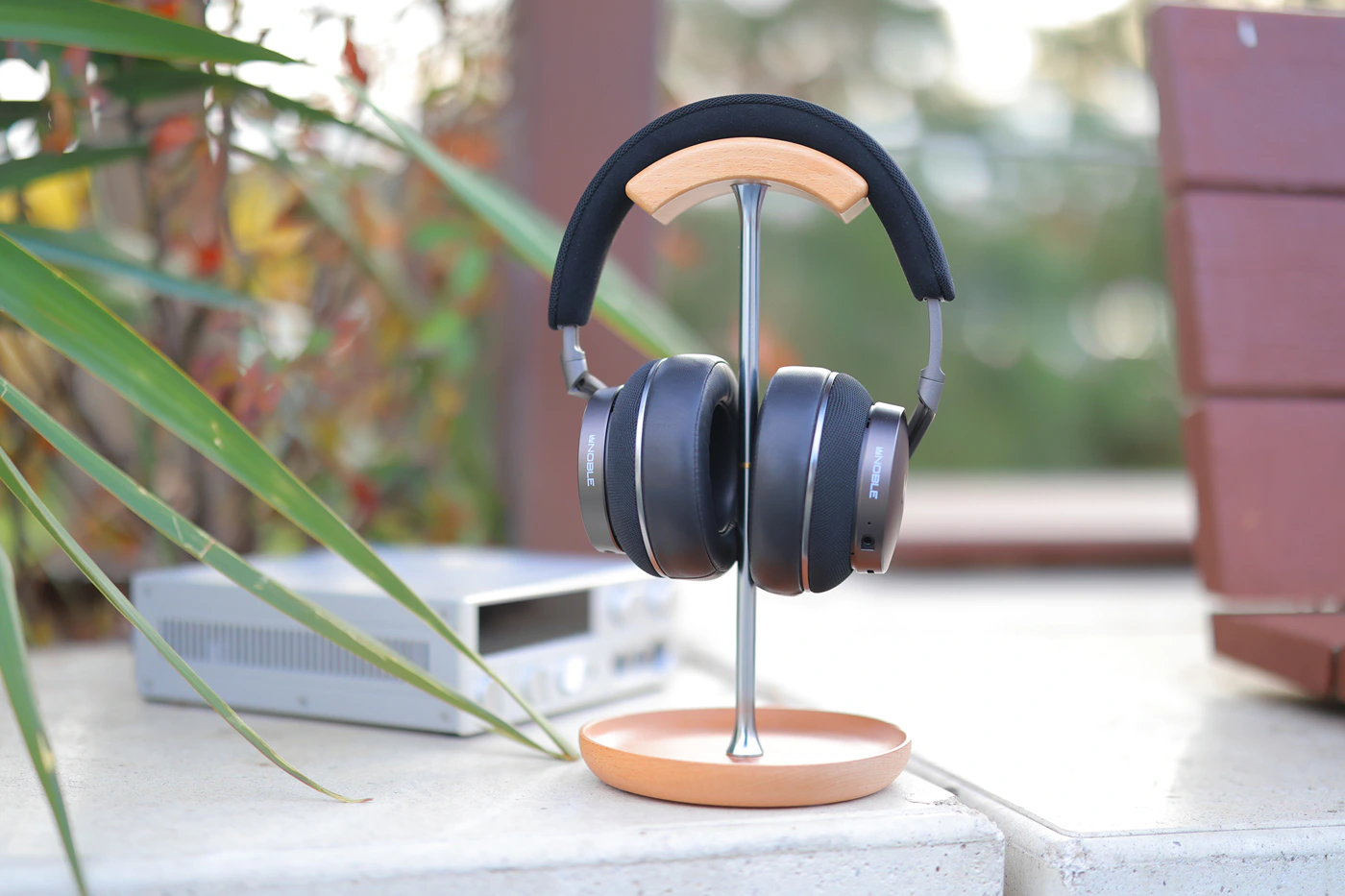
Introduction
Noble is a new brand in our review collection, and they are a rather popular company creating mostly IEMs, but now delving into the headphone space as well. Noble IEMs are used by a number of popular artists, including pop and rock singers, and they make some of the most interesting CIEMs. As Noble usually makes IEMs, they are well acquainted with hybrid setups, and now we’re finally seeing those magics implemented in full-sized headphones.
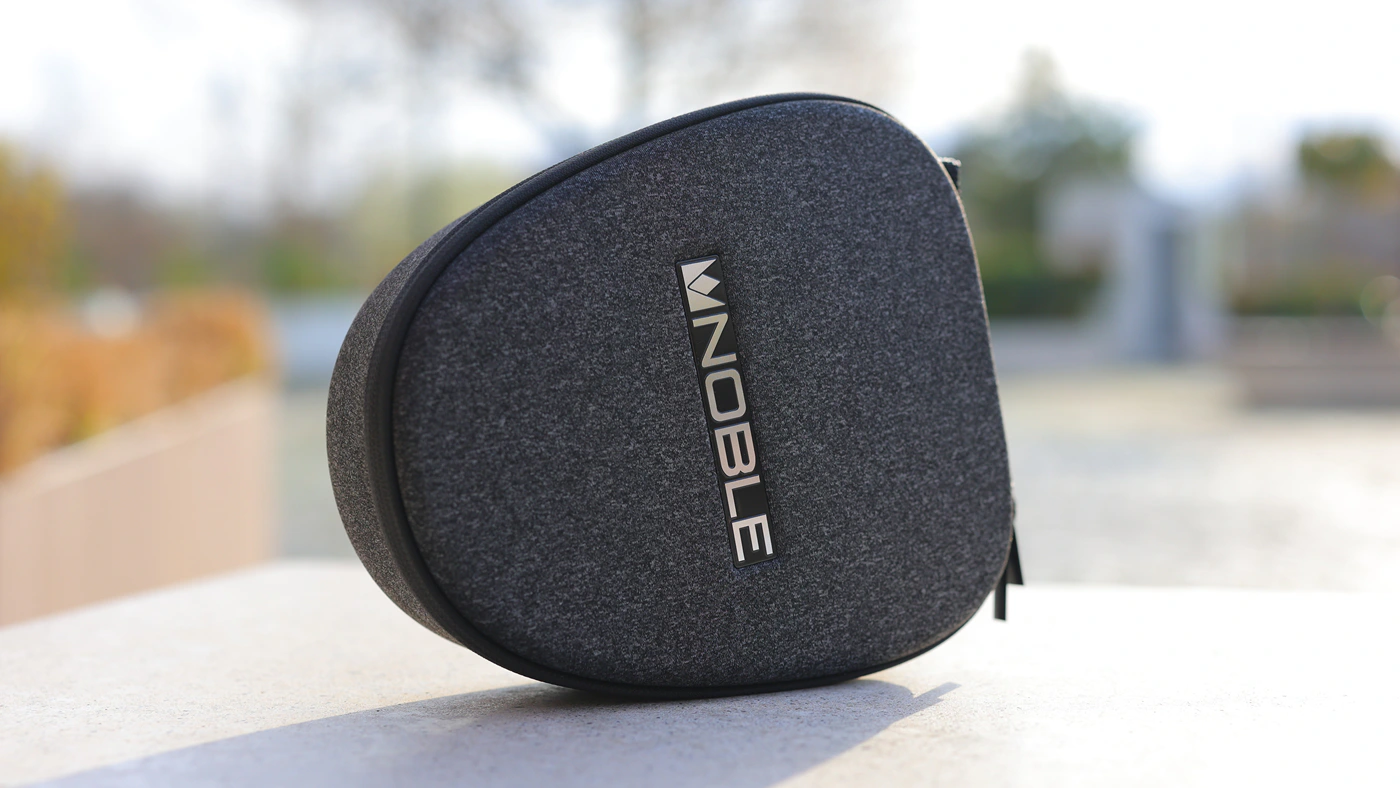
As an Amazon Influencer, I earn from qualifying purchases, and using the purchase links in my reviews helps me maintain this website and Youtube Channel. Huge thanks to Noble and JackRabbit for providing the sample for this review, in exchange for my honest opinion.
Product Link
Amazon – https://amzn.to/3Yw32Am
Build Quality / Aesthetics
Noble Fokus Apollo is the first over-the-ear pair of headphones made by Noble, but as far as I know, it is also the world’s first pair of headphones that uses the 1x40mm dynamic driver + 1×14.5mm planar magnetic driver array seen inside. We have support for a long list of codecs, including LDAC, AAC, aptX and aptX HD, and naturally SBC, all supported by the QCC3084 chip.
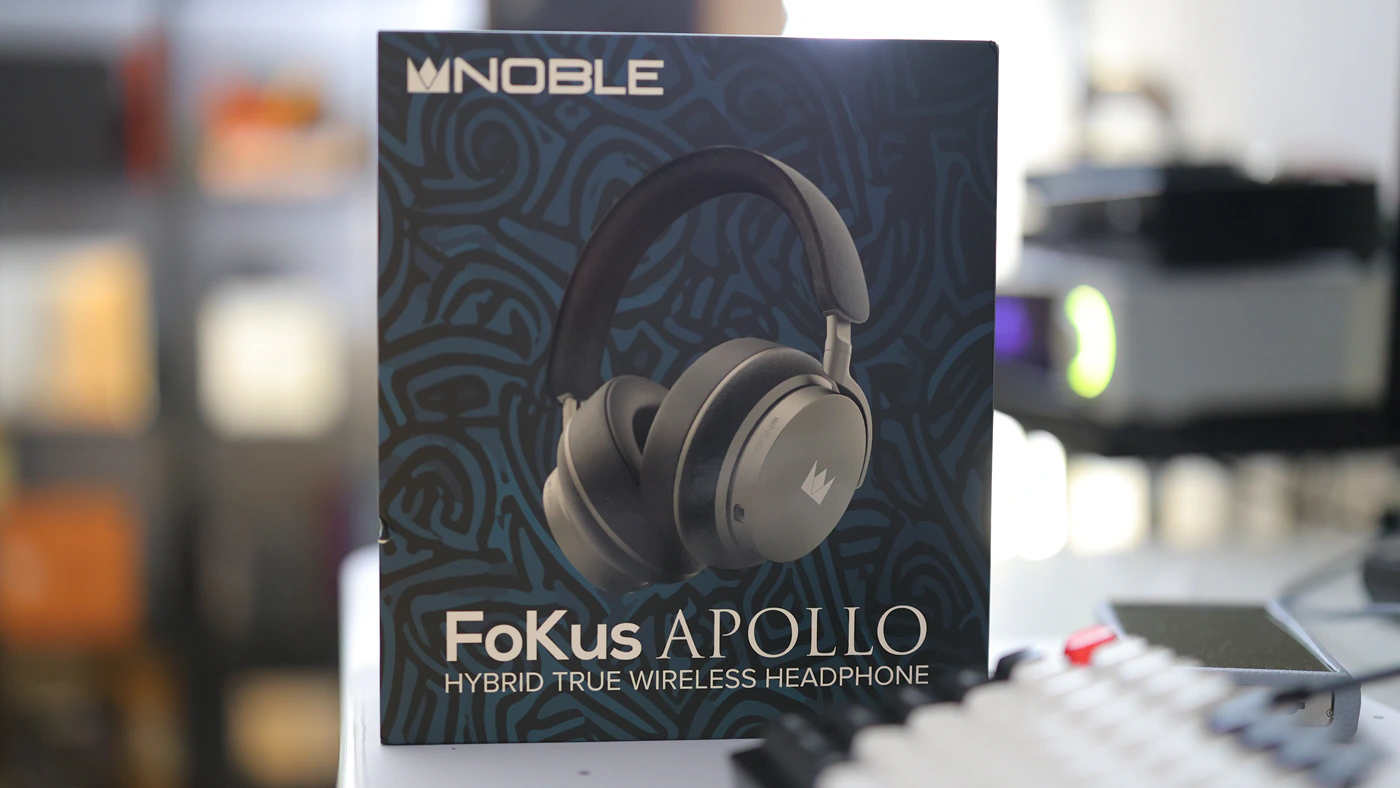
There can be no pair of Bluetooth headphones today without ANC, so Noble implemented one ADI chip, with 3 microphones per side, providing hybrid ANC with a reduction of the background noise of up to -35 dB. There’s also a super transparency mode which feeds all outside noise in the headphones, and we have a favorite feature as seen in HIFIMAN Ananda Bluetooth, the removable boom mic.
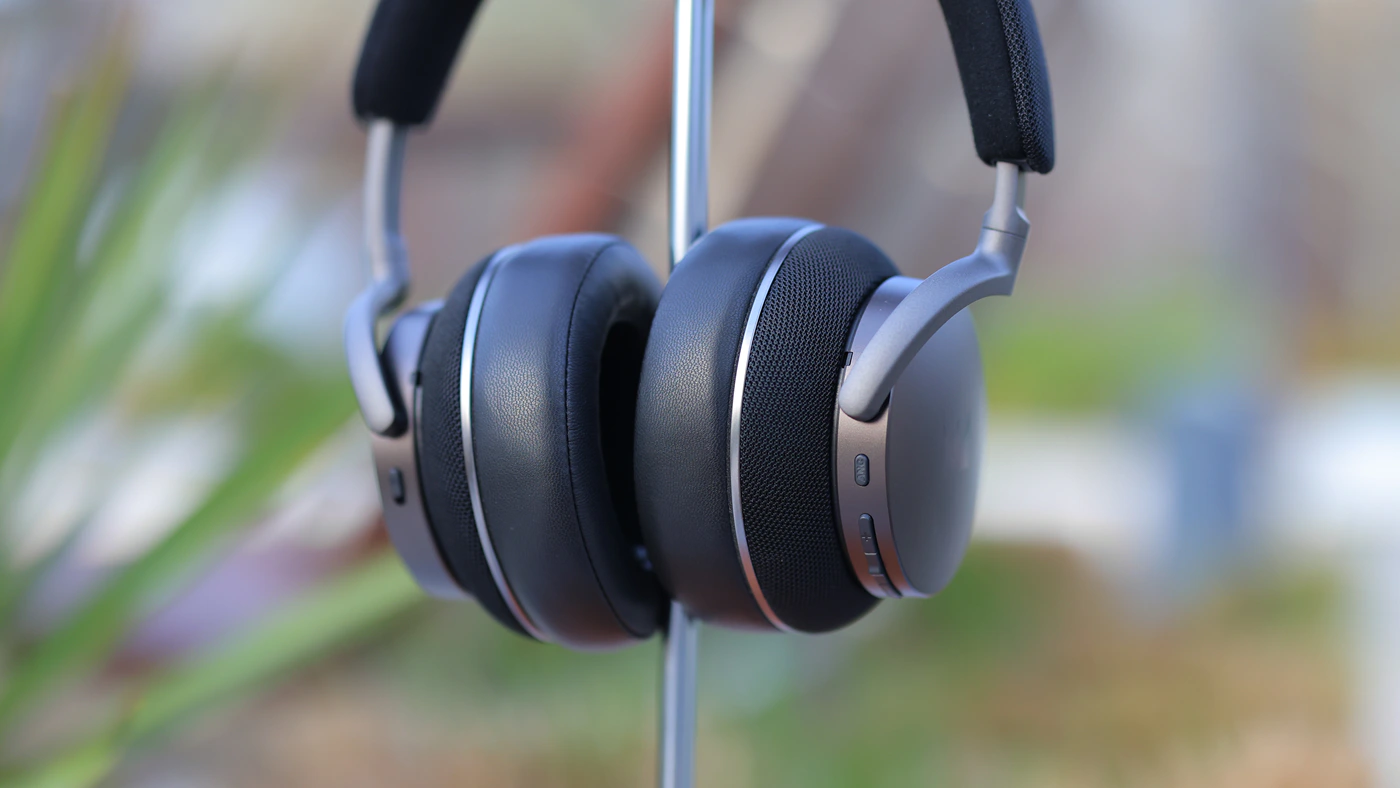
Noble promises excellent battery life, including 80 hours of play time without ANC and 60 hours of play time with ANC. If your battery runs out, you can use a 3.5mm aux cable to feed the Apollo signal from any audio source, and premium components used in the Apollo include anodized aluminium frame, memory foam earpads, premium protein leather earpads that are fully replaceable, and an Alcantara headband. There’s an app available, Noble Fokus.
Subjective Experience
As the marketing materials available for Apollo are rather scarce, we will have to focus on the actual product and what I found in the package, starting with the 3.5mm balanced cable, which includes a 4.4mm balanced adapter. This is rather surprising and I was not expecting this kind of service, as most bluetooth headphones to not come with a balanced 4.4mm input, and another really surprising part is the microphone included in the package that’s really capable, giving Fokus Apollo a really nice quality, for taking phone calls and speaking in conferences.
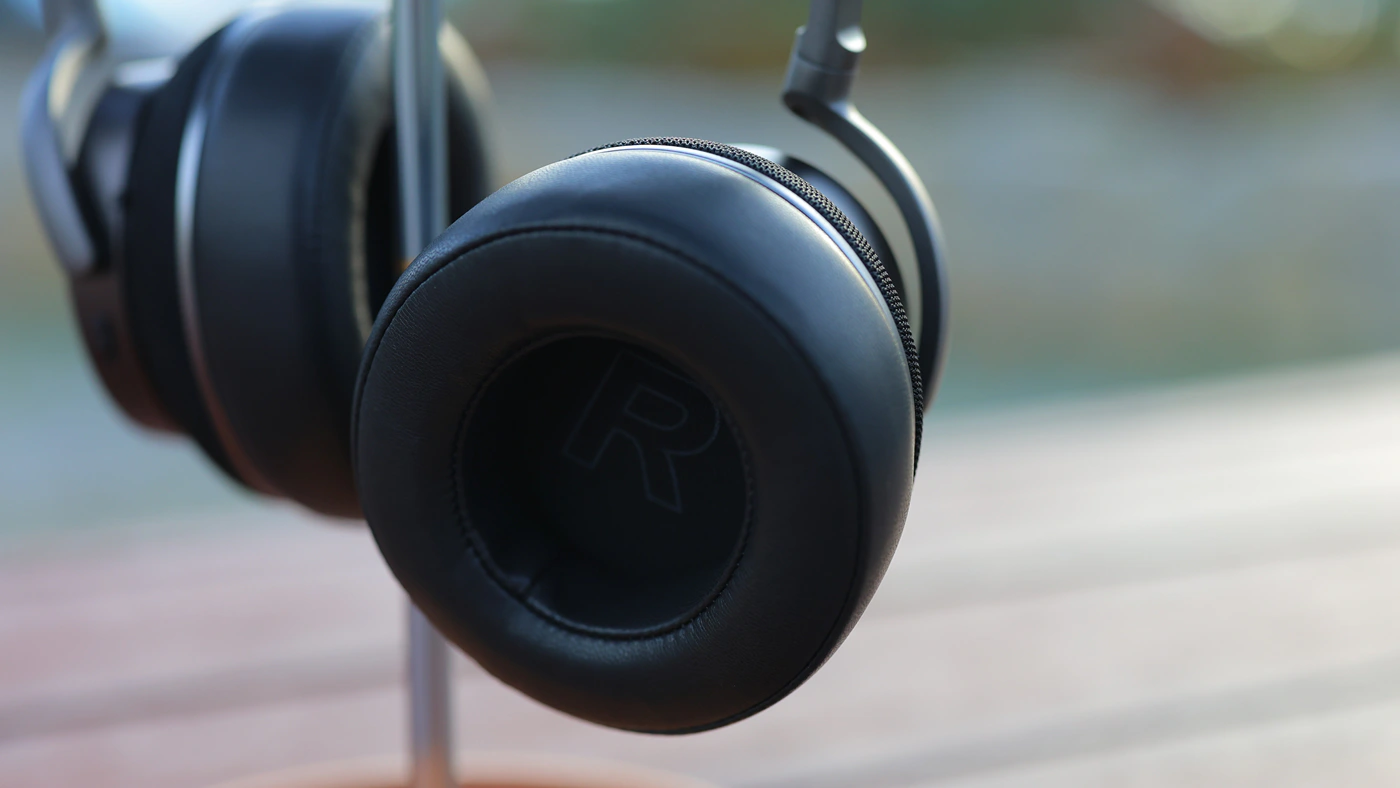
We also have an effective ANC that does not damage the sound, although the effect of the ANC is not the strongest ever. The only downside of using the ANC is the slightly reduced battery life. Using the headphones in full passive mode sounds slightly less detailed and less crisp than using them in active mode, but both modes work alright. You can even use the Noble Fokus Apollo as a USB Sound Card, with no USB DAC delay. Everything works really nicely.
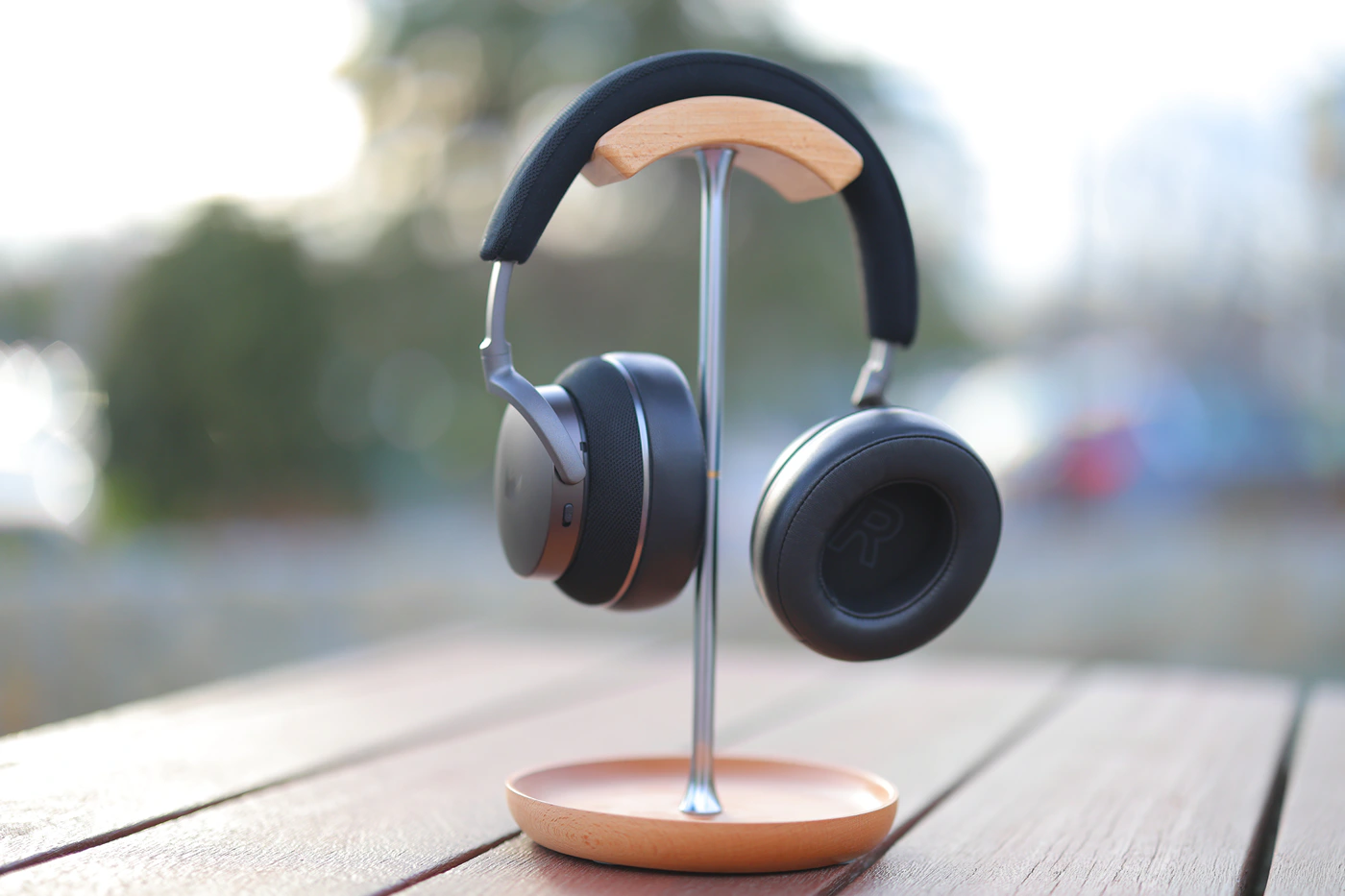
Comfort is always subjective, but Noble Fokus Apollo is tight on my head, has a high clamping force, earpads are very dense, a bit hard, comfort is best for someone with a smaller head and someone who has good comfort with tight headphones and smallear earpads. Best sound is when the Apollo is turned on for sure, and this does not increase the heat too much, although the headphones generally do get warm on my head. Cable is a bit stiff, both 3.5mm cable and Type-C usb cable, so you can hear if it brushes against your clothes, but they are made to be wireless, so the fact Apollo is light helps a lot. They will sit on your head even if you are at the gym doing heavy workouts or running, but they will be drenched in sweat in that scenario.
Sound Quality
Pairings – Driving the new Noble Fokus Apollo should generally be done via Bluetooth, as that’s how it was designed to achieve the highest performance. For this task I’ve used either my Samsung S24 Ultra or my Wife’s S23 Ultra. Samsung smartphones have the highest sound quality in general, compared to most smartphones, and I experienced a better overall SQ with samsung phones compared to Motorola, iPhones or basically any other phones, with the exception of Asus phones which I’ve found to have an excellent sound.
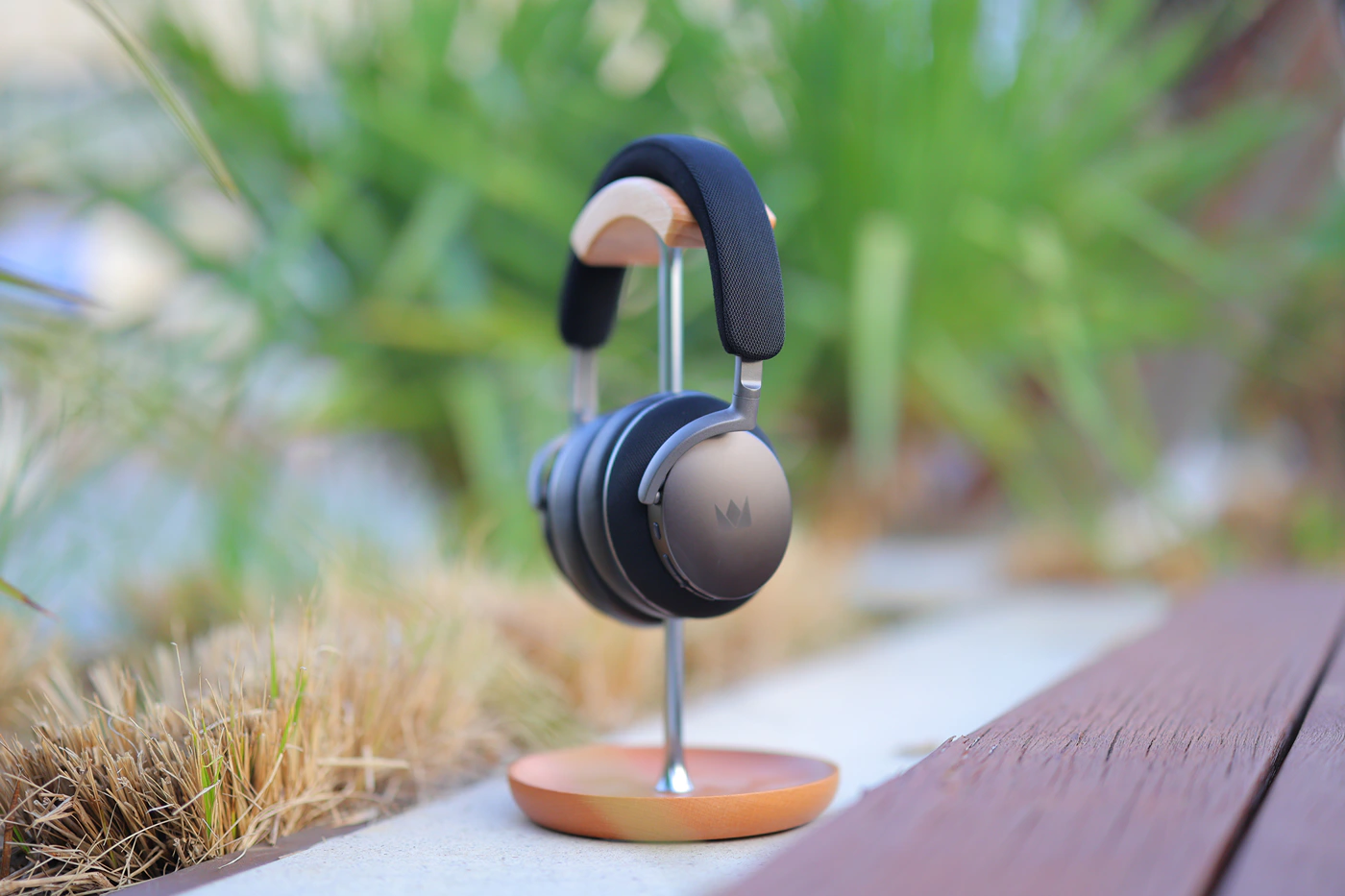
For the wired connection, the amplification of the Noble Fokus Apollo can either be turned on or off, with the sound with the headphones turned off being rather different. All amplified connections have the same sonic signatures, but not the same limitations, and the one passive mode it has, with the headphones turned off, ANC not available, but being powered by an active source, sounding different, and being the odd one out. For driving the Noble Fokus Apollo passively, I’ve used a collection of sources, including Lotoo PAW GT2, iBasso DX340, Shanling EH1, FiiO K17, Singxer SA-1 V2 connection to FiiO S15. I am surprised by how much power Noble Fokus Apollo requires to be powered properly, almost all sources need high gain, and you can pump a lot of power into them to get a good strength and volume, but in active mode, the inner amplification has a ton of power to drive them. After careful consideration, I realised that the passive mode is not worth exploring, it is the same tuning, but not quite there, as the active one. Be sure to keep the Apollo charge for the best sound.
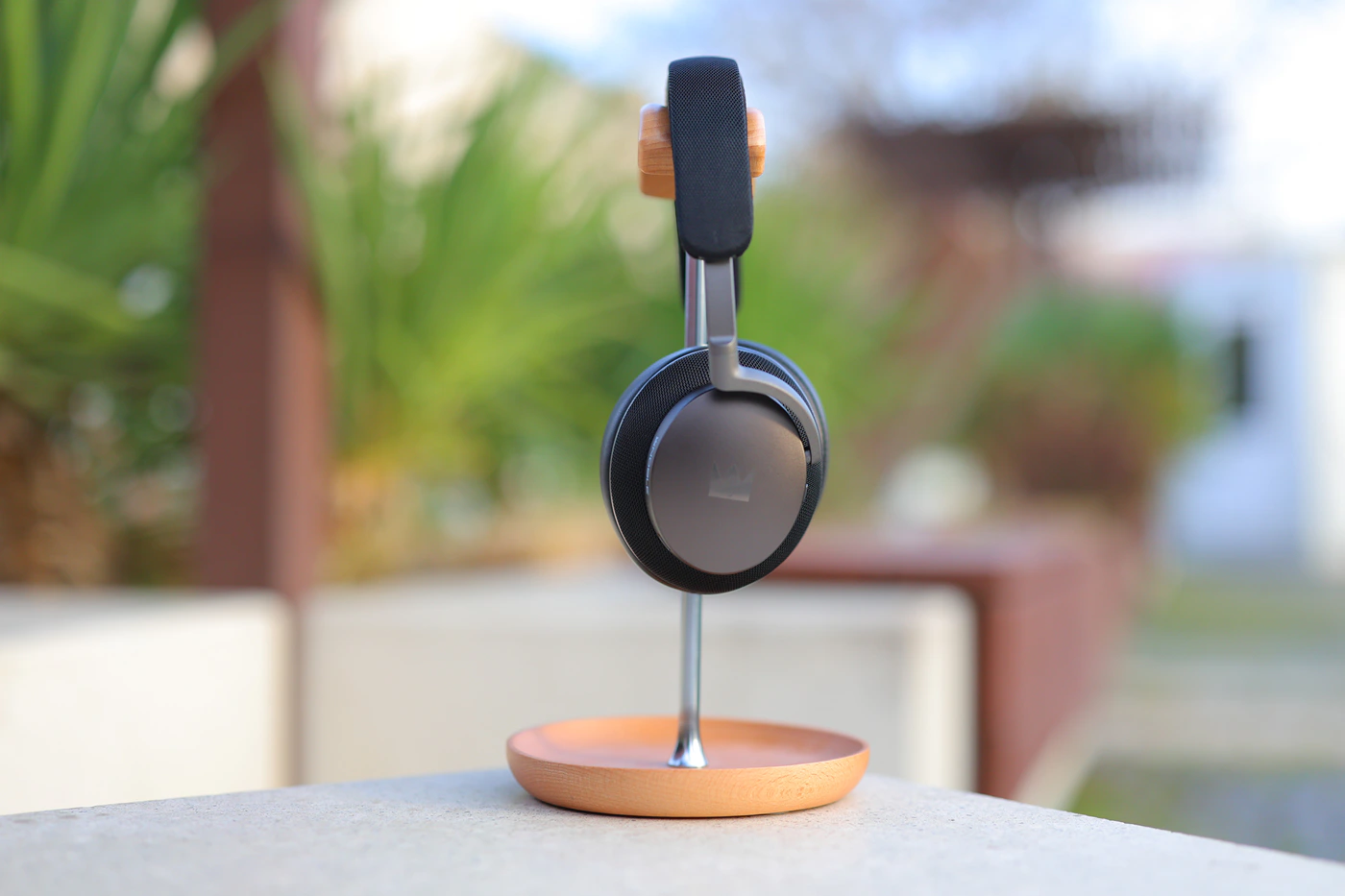
Overall Signature – So we will study the sound active, it is the same sound wired, via type-C, 3.5mm cable, or wireless, and sound is basically the same with ANC turned on or off. I recommend keeping it off unless you need it. There is one rather considerable difference, Apollo can get much louder via wired than wireless, somehow the software seems to be conservative with the maximum volume it allows for the wireless connection, although the internal AMP is clearly capable of more. This might get fixed with a software update.
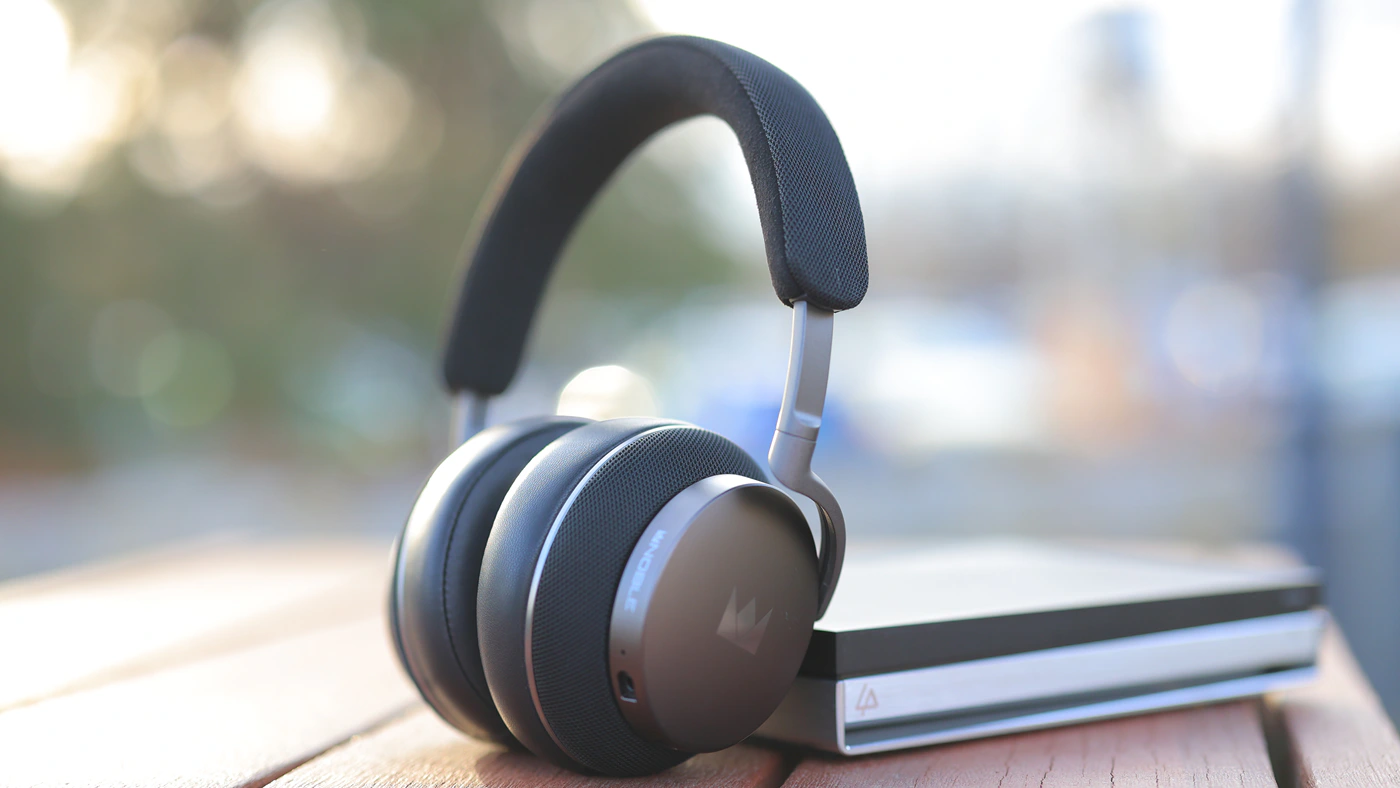
The general sound is the most bombastic, bassiest, deepest sound you can imagine, with even more punch, more impact, more bass and depth than your mind is ready to comprehend and accept can exist. This kind of signature does not have a good resolution typically, but Noble managed to bring a rather nice amount of treble and details to this overly bassy sound, creating a nice combination of bassy, warm, deep sound and a crisp, sharp midrange that’s excellent for a versatile playlist. This being said, you’re best off listening to bombastic music, pop, EDM, stuff that’s ready to jump at you and explode. Sound is louder, considerably so, for the wired versions, all of them, but this bombatastic signature is consistent across all modes, including passive mode. Colorful, vivid, and nice is how I am willing to describe the Apollo.
It is an amazing headphone for me, and I found myself in multiple stages. I did not like the sound at first, as I tried wireless first, it was not loud enough for me. Afterwards, I tried them wired, but active, and I fell in love with them. I spent hours rediscovering the bass in my favorite songs, it is a really nice sound. Apollo has a strong tendency to sound much better the louder you go, so if you want to experience them to the fullest, make sure to bring them close to the brim.
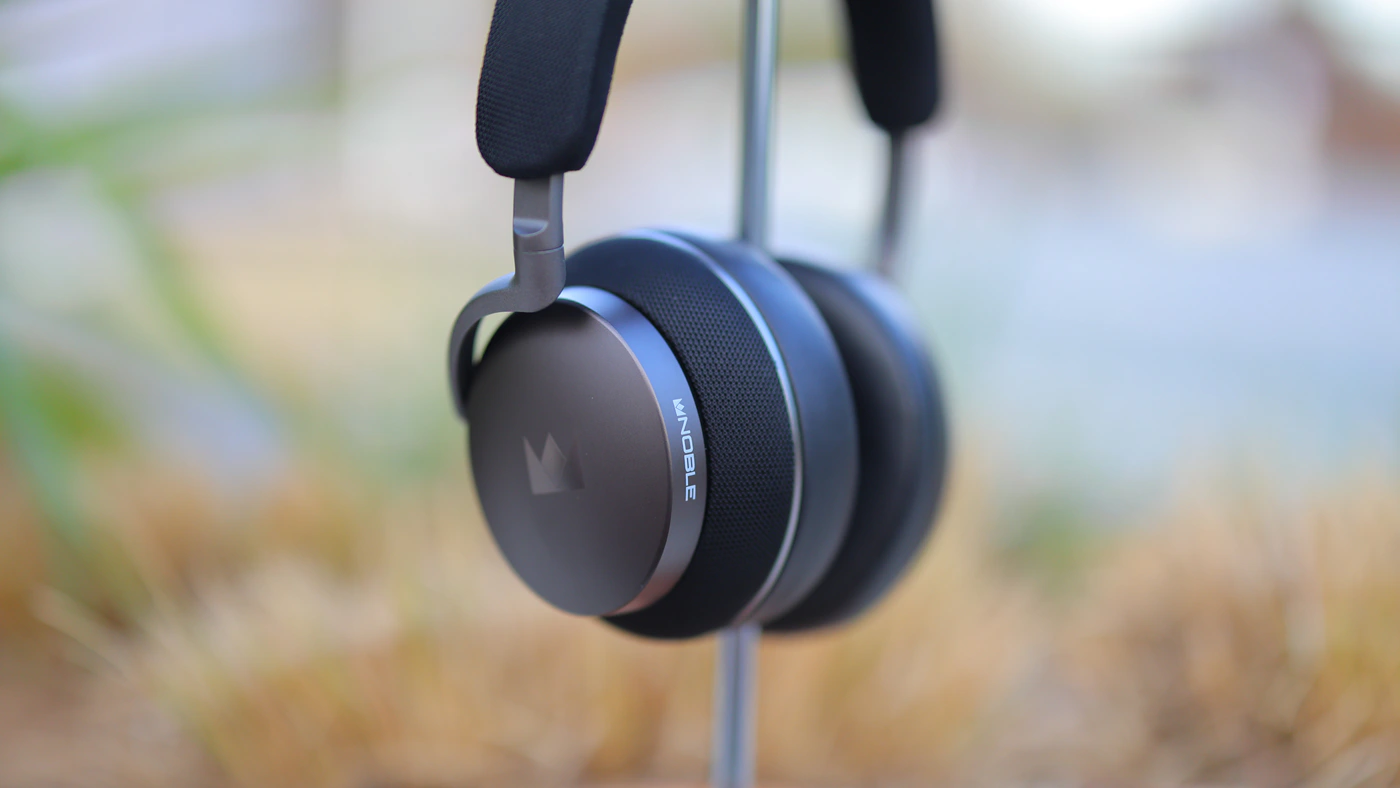
Bass – Starting from the depths, Apollo has no wells of bass, it has an entire trench, it reaches in the Marianas to bring you impact, depth and focus, a bass that can rumble your ears like you’ve never heard before. If audiophile headphones can in general reach 20 Hz, Noble Fokus Apollo shatters the perception of bass, it has a boost of around 20 dB of bass relative to the midrange and the treble, but it is just the sub bass, so you feel like a club just opened right in between your ears, you hear true raw impact, although the bass itself is smooth, clean and has a low distortion considering the entire sound.
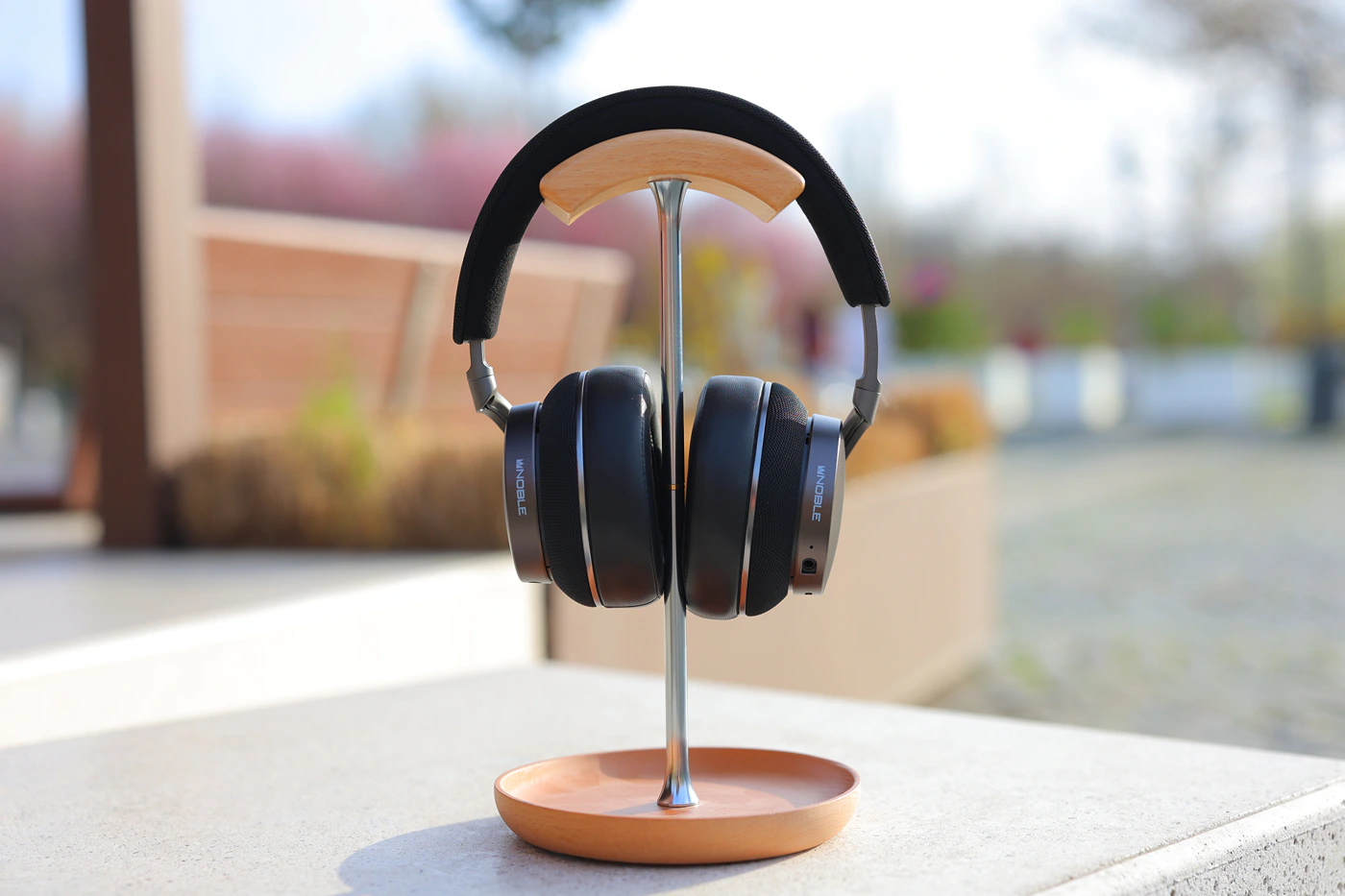
Midrange – Noble managed to blend in a sweet, vocally pleasing sound, with both male and female voices having the same power and strength, sounding clean, open and detailed, vivid, and guitar solos sounding juicy. I am not entirely sure how the crossover of the Apollo is configured, but you will not hear where the dynamic driver ends and where the planar starts, they blend well, and at times it feels like they are made to complement each other. I generally don’t spend as much time with a new pair of headphones, they usually don’t sound this nice, especially at this price point, but Apollo put a smile on my face. After a really long period of having to move my entire setup and studio, I did not enjoy a lot of music, but apollo, with their ANC and tight fit, allowed me to disconnect from the insanity of it all and finally really enjoy music to the max, especially thanks to the bombastic signature, but combined with a clean, crisp voicing.
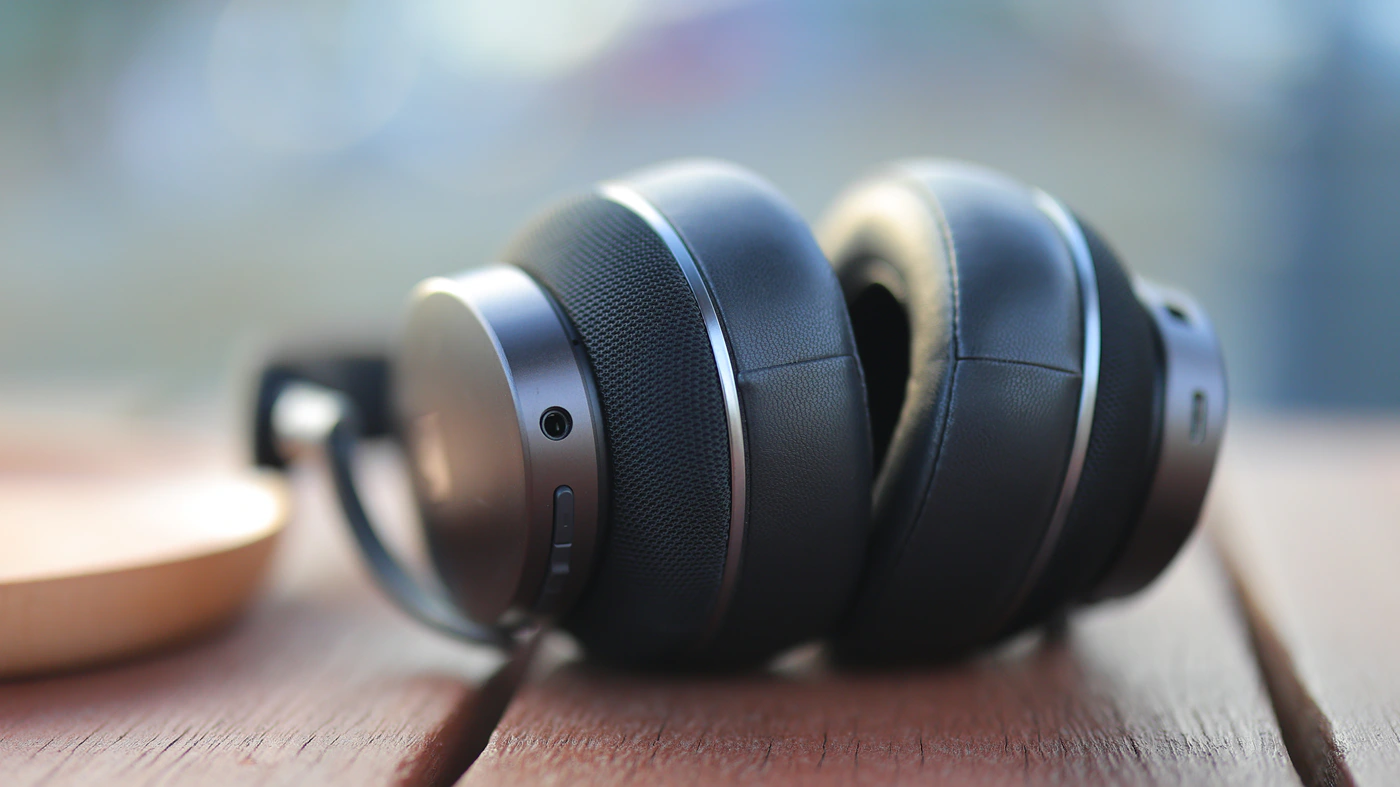
Treble – We get a sharp, bright extension of treble, up to about 16 kHz, with a natural roll-off above it, treble is generally audible and easy to enjoy, it brings balance, sharpness and detail to the otherwise warm and full / bassy sound. I would generally call this tuning V-Shaped or U-Shaped but Apollo is not necessarily tilted in any way, everything is in abundance, perfect for Pop, Electronic, EMD, and commercial, new music in general. It can sound a bit dark and bloomy at times, which is a coloration, but it disappears after about half an hour of listening to them.
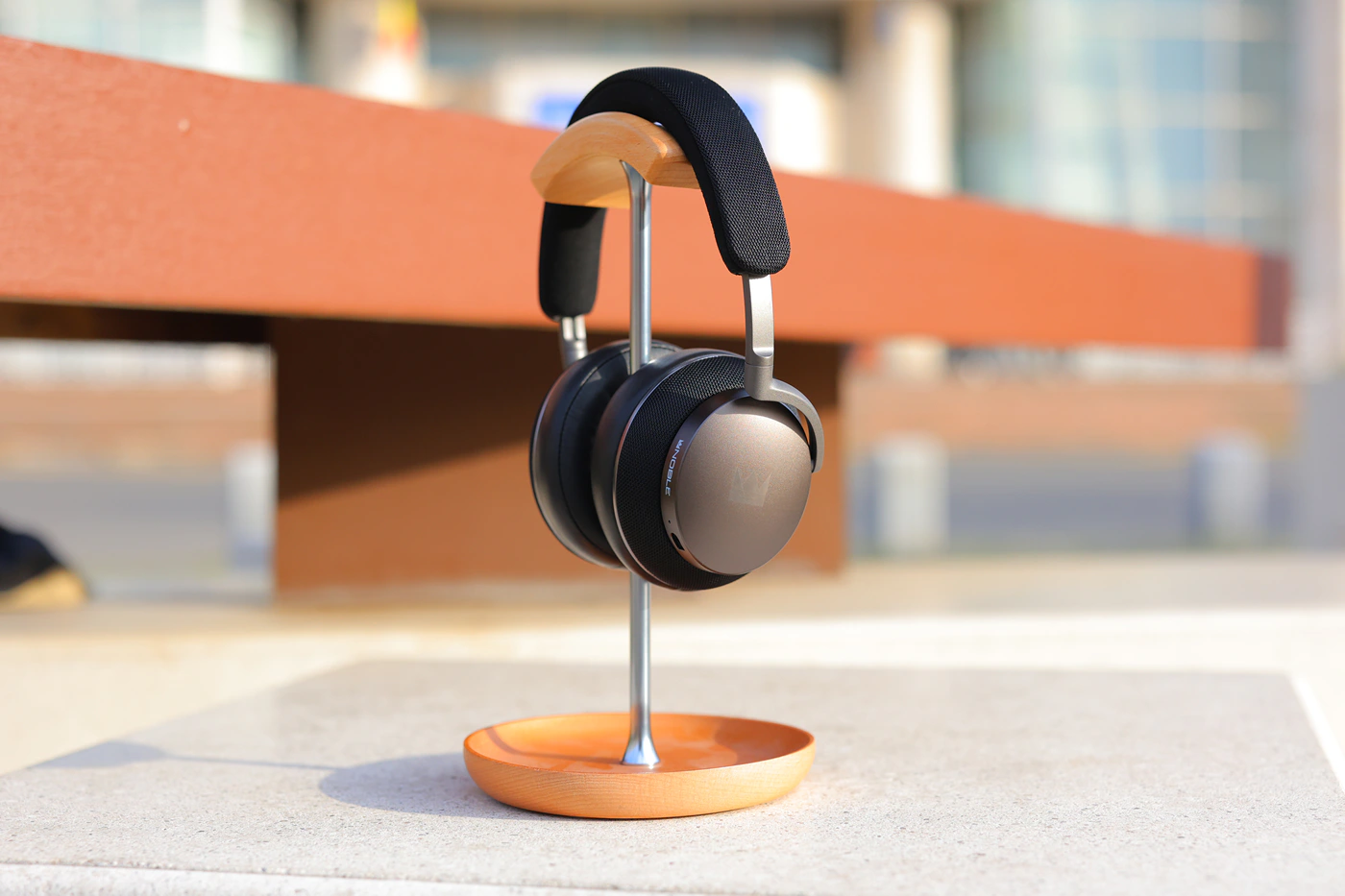
Dynamics / PRaT / Textures – Here is where I hear both drivers putting in the effort, but with the planar driver seemingly putting in more effort in the midrange and the treble, because it presents a sharper, more detailed texture in the midrange and the treble, while bass is smoother, fuller and less textured. This is pleasing to the ear and feels natural, it actually achieves a more rounded and natural presentation than any bluetooth pair of headphones I tested to date. Truly impressive is also the overall detail, Apollo does not miss a thing when it comes to revealing even hidden details, but as it adds so much body to sound, especially for modern music, the presentation is far more cohesive than most brighter sounding tunings.
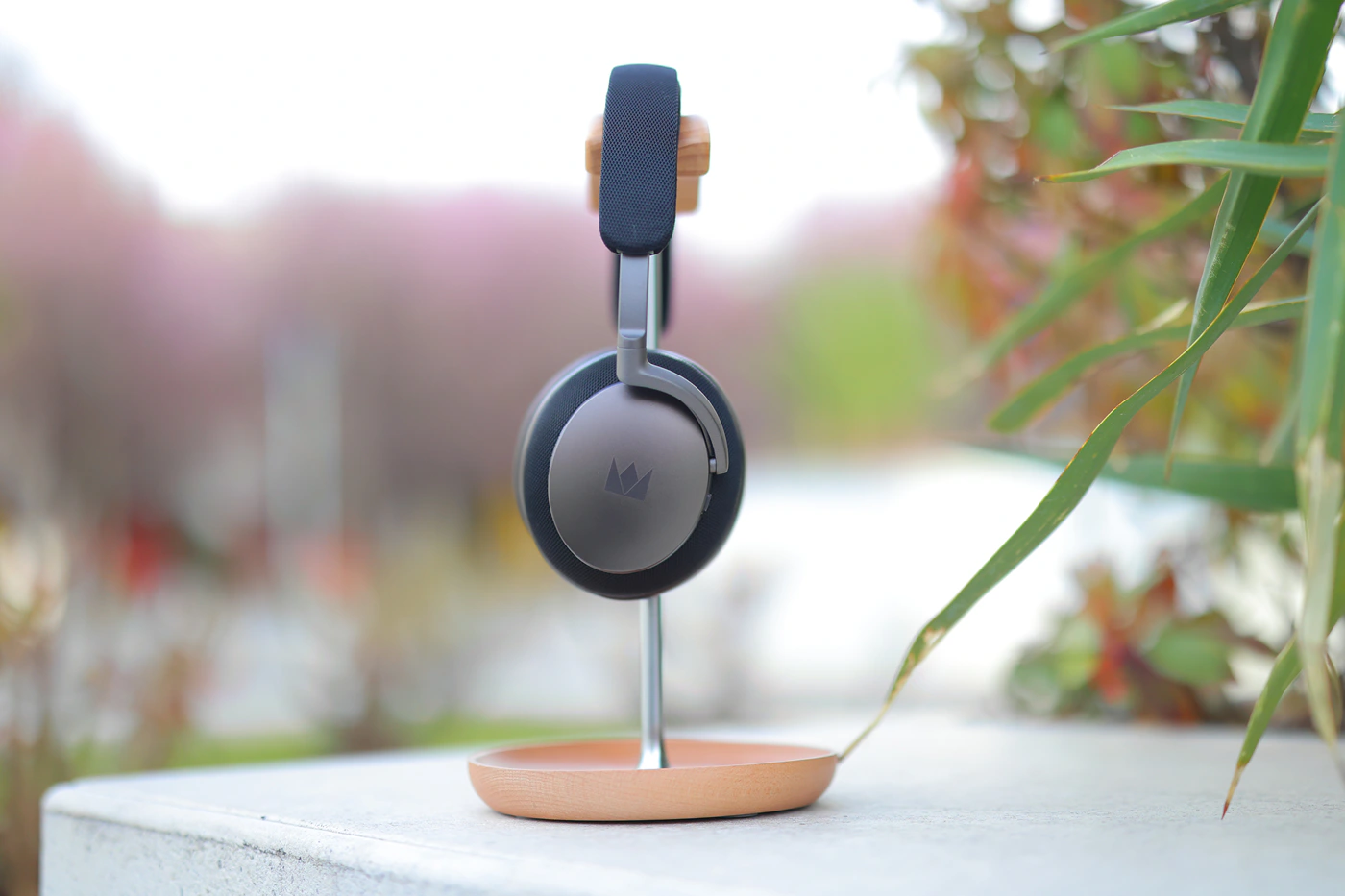
Loudness Saturation Gradient – We get a really different sound loud and quiet. The signature really comes alive loud, when the treble has better balance relative to the bass and the midrange, as at lower volumes, Apollo sounds bloomy, dark and not quite as vivid. In fact, the loudness saturation gradient is the only weakness that Apollo has, you need to pump volume, and wireless it sounds quite a bit quieter than it does wired, regardless whether it is amped or passive, so this should be kept in mind.
Soundstage – Apollo has a natural soundstage, up loud sound gets holographic and colorful, while at quiet volumes it is rather bloomy and intimate. In general, you will not feel too tight, but they don’t expand the sound more than the natural boundaries dictated by the recording and mixing.
Comparisons
Noble FoKus Apollo vs Ecoute TH1 (649 USD vs 850 USD) – TH1 is a larger pair of headphones with a less tight fit, they feel more comfortable, but can feel a bit heavier on the head. TH1 has a tube inside, it also does not get all that loud while wireless, but it has a more mid centric, sweeter, less punchy sound with a more romantic approach. In contrast, Apollo feels tight, isolates far more from the outside noise, it sounds far bassier, more bombastic, but also tighter, and more punchy. Apollo is better if you want a V-Shaped sound with a ton of bass, while TH1 does magic in the midrange, has a warm bass, but nowhere near as much sub bass, and it also has a smoother, more relaxed treble. Very different sonic presentations for a different style and listener.
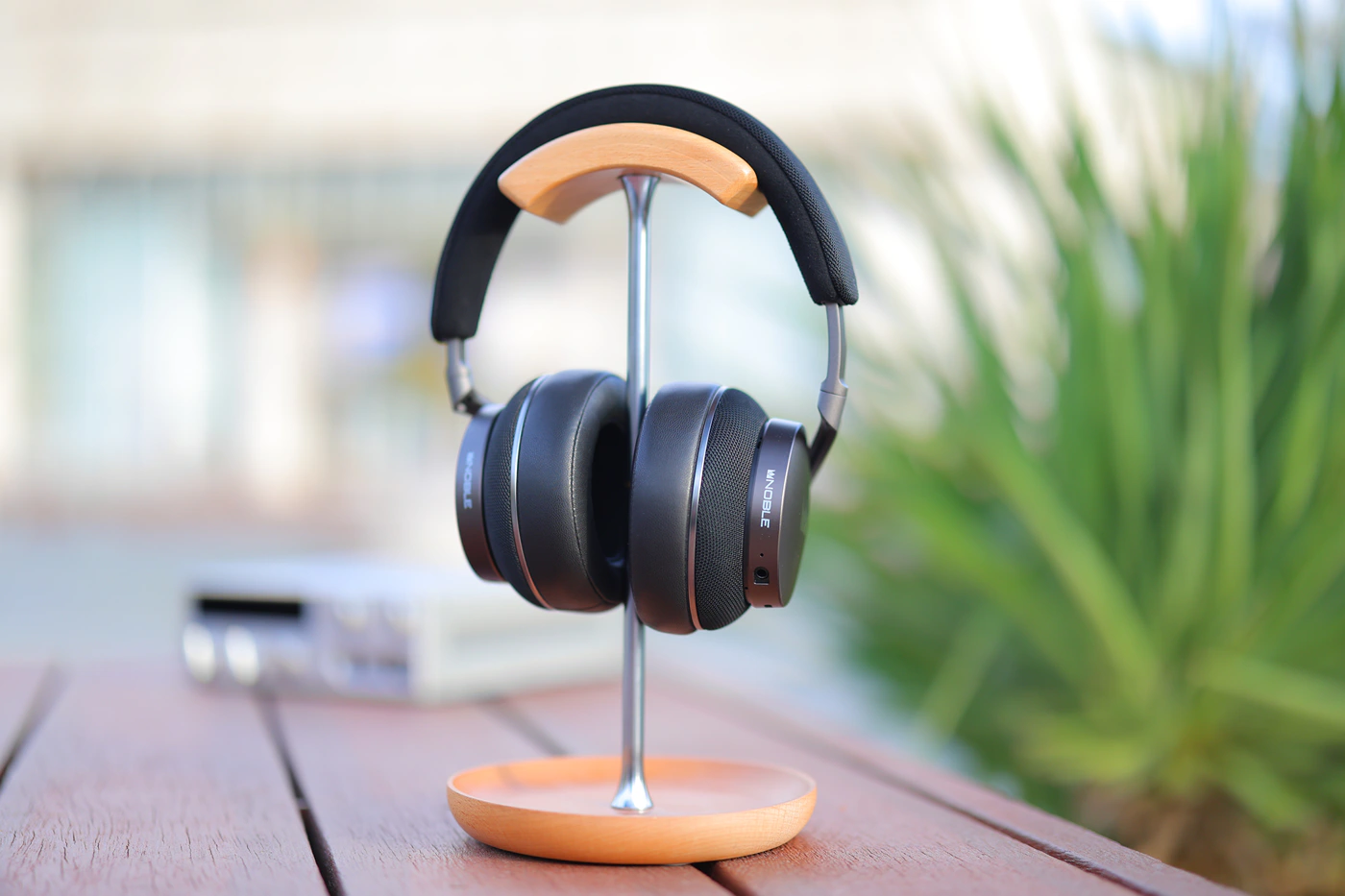
Noble FoKus Apollo vs Focal Bathys (649 USD vs 699 USD) – Bathys has a similar price point, it looks more modern, has a larger design, much looser and more comfortable fit, while Apollo is much more dense, it feels tighter, and has a slightly lower maximum volume wireless, but a much higher volume and lower distortion wired. Bathys has a more mid-centric sound with more mid bass, less sub-bass, a somewhat more harsh and less cohesive sound. Apollo sounds really deep, powerful, impactful, bassy, bombastic and has a more cohesive sound, more natural midrange, it is more satisfying to listen to, especially with EDM, Pop, Electronic and modern music in general.
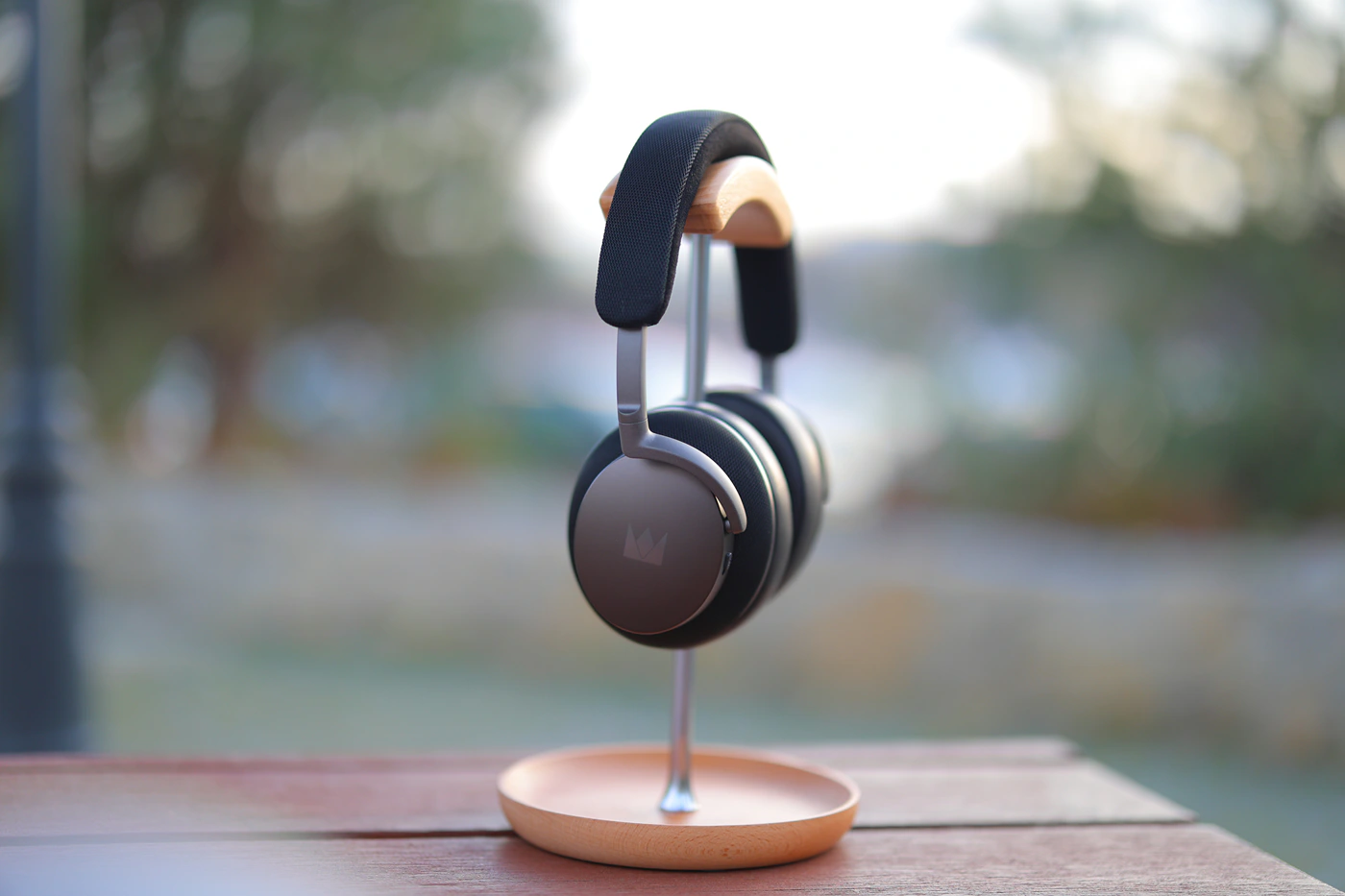
Noble FoKus Apollo vs Sennheiser Momentum 4 (649 USD vs 338 USD) – Momentum 4 is the closest in signature to Apollo, and in comfort too, but overall Apollo is tighter, has a tighter fit, and feels a bit heavier. Momentum 4 can get louder wireless, but has a slightly higher distortion in general. Microphone quality on Apollo is much better in general. Sonically, Momentum 4 is thicker, will distort much faster, and will just sound bloomy and dark, while Apollo has a ton more treble, a more crisp sound and a higher resolution. If you can afford it, Apollo and Momentum do a similar thing, but apollo is the higher quality version of that signature, while Momentum 4 is half the price, and still sounds quite nice, although it is like a bass boosted version of apollo, with much less treble and mids, and less resolution.
Value and Conclusion
Surely, for a rather steep price of 649 USD, Noble delivers a really good experience, although it is mainly aimed at a moderately basshead audiophile. If you’re a full-on basshead, Momentum 4 is more of a basshead pair of headphones, while if you’re looking for a more unique sound, Ecoute TH1 has a tube inside, so Noble Fokus Apollo falls in the versatile part of the market, where it is a pair of headphones that’s really excellent, with a new driver situation, it can achieve a vivid midrange, bombastic bass, it is not just basshead, it is fun and crisp, uniquely fun to explore your entire library with.
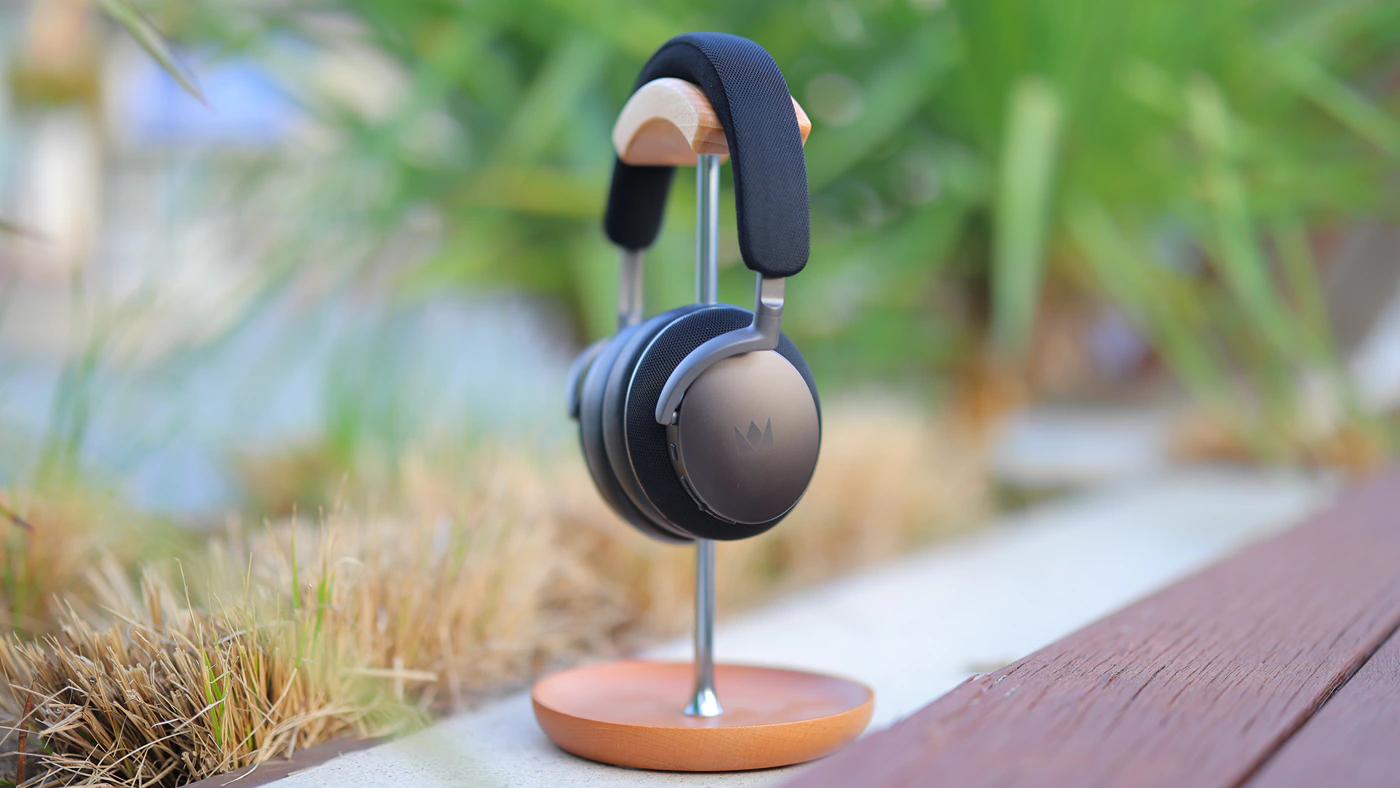
At the end of the day, if you want bass, explosion, and for your ears to experience true depth, and bombtastic bomboclat bass, you need to hear the Noble Fokus apollo, a basshead pair of headphones that blends detail, sharpness, voices and everything well with one of the most impactful bass presentations there are.
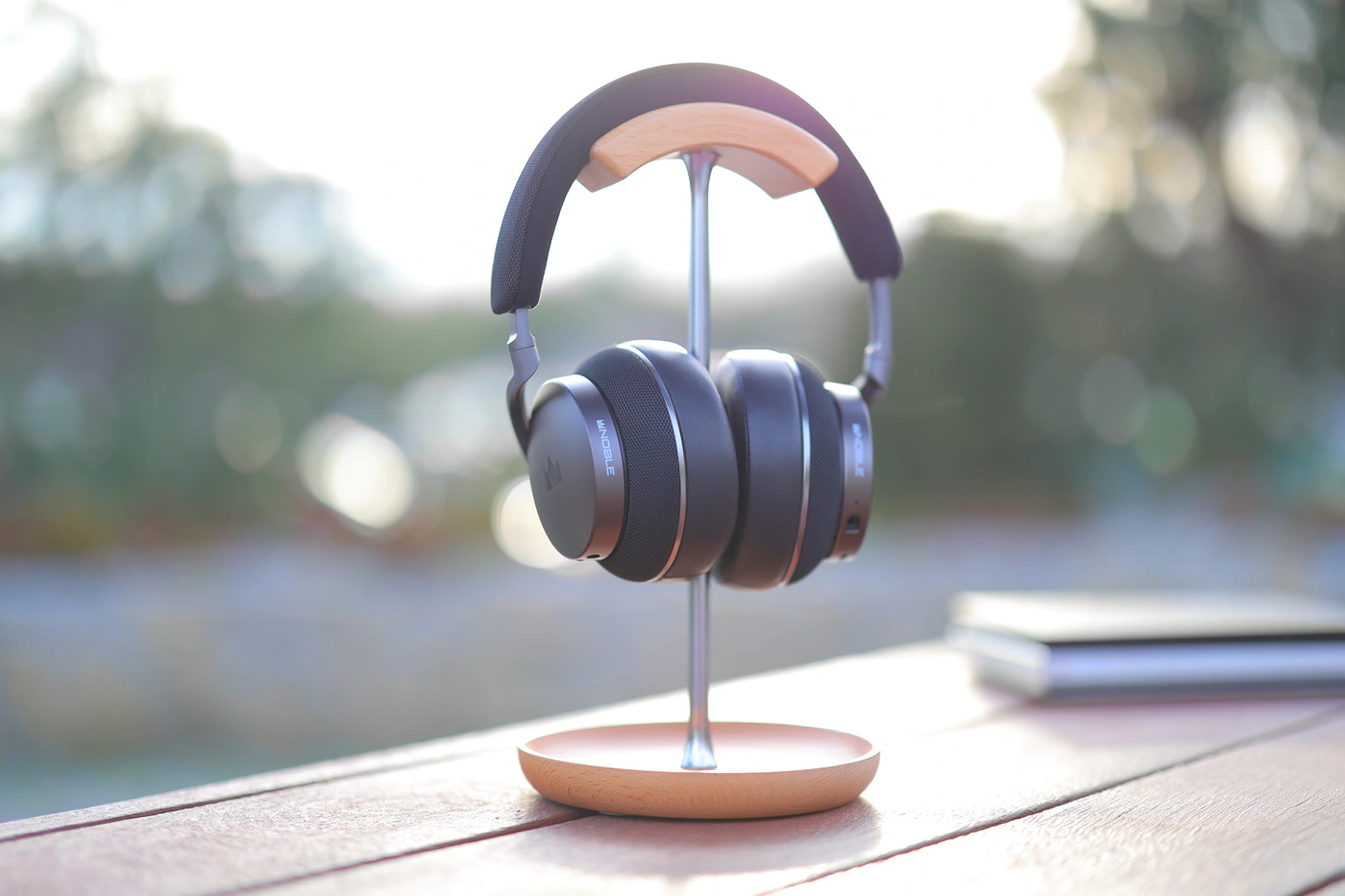
PROs
- Excellent build quality, sturdy and reliable
- Tight and reliable fit
- The most bombastic sound with the most detail in the price range
- Utterly mad and unbelievable bass impact, depth and overall smoothness
- Exceptional resolution and vividness in the midrange
- Nice microphone
- ANC that works fairly well
- Overall an excellent purchase
- Love them
- Balanced cable included
Cons
- Of you don’t want a basshead pair of headphones, it is all about the bass
- Becomes alive really loud
- Does not get incredibly loud wireless
Product Link
Amazon – https://amzn.to/3Yw32Am
--- Please remember to stay safe, and always have fun while listening to music!---
- If you have a dime to spare, please donate, and help us! It would make the day brighter for me and my wife-
Full Playlist used for this review
We listened to more songs than those named in this playlist, but those are excellent for identifying a sonic signature. I recommend trying most of the songs from this playlist, especially if you’re searching for new music! The playlists are different for Spotify, Tidal and Youtube, and based on the songs I enjoy and are available on each!
https://www.youtube.com/playlist?list=PL_cjBXGmwSHSdGcwuc_bKbBDGHL4QvYBu
https://open.spotify.com/playlist/5J3oloz8Riy9LxEGenOjQ0?si=979ba4f082414be7
https://tidal.com/browse/playlist/330fd544-8e5b-4839-bd35-676b2edbb3d5
--- Contact Us ---





